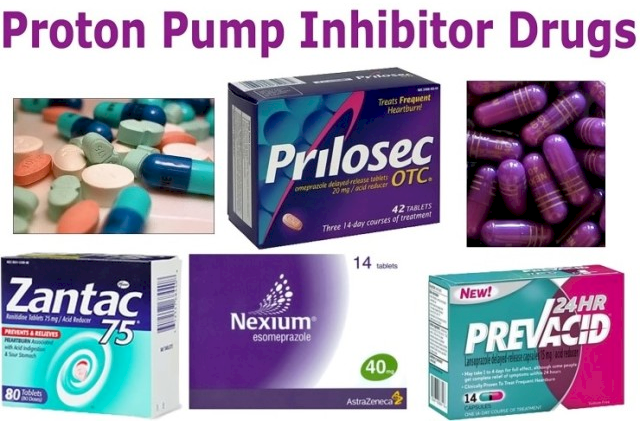More studies emerging that PPIs (proton Pump Inhibitors) linked to increased risks of deaths
Source: Thailand Medical News Jun 07, 2019 6 years, 6 months, 2 weeks, 1 day, 2 hours, 24 minutes ago
Results from another new study, this time conducted by Washington University School Of medicine in St Louis indicates that people who use common heartburn drugs such as PPIs or proton pump inhibitors faced increased risk of dying from heart diseases, stomach cancer or kidney failure

The study involved more than 200,000 U.S. veterans. It's the latest to raise concerns over drugs called proton pump inhibitors (PPIs). They include prescription and over-the-counter drugs like Prilosec (omeprazole), Miracid (omeprazole) Prevacid (lansoprazole) and Nexium (esomeprazole). These drugs ranked among the top-selling medications in the United States while Miracid is sold extensively in Thailand and Asia due to its cheap costs.
Various research in recent years has linked prolonged PPI use to increased risks of various diseases and premature deaths but despite these, the US FDA has not taken any actions probably due to intense lobbying by the pharmaceutical companies. These latest results point to the specific causes of death tied to these drugs, said lead researcher Dr. Ziyad Al-Aly in a phone interview with Thailand Medical News.
He indicated the risks involved were rather substantial to warrant looking into the need for PPI prescriptions.. For instance, over 10 years, 13% of PPI users died of a cardiovascular condition, including stroke or heart disease .
The team also considered other factors—such as patients' age and chronic health conditions. When taken into consideration, PPI use was linked to a roughly 18% higher risk of cardiovascular death.
When many of these patients records were analysed, there were no documentation that PPI prescriptions were needed. "That's unsettling," said Dr Ziyad "It means that a lot of people were using a PPI without actually needing one," he said. "They could be taking a risk without deriving any benefit."
PPIs work by blocking the enzyme system that creates stomach acid. They are commonly prescribed for gastroesophageal reflux disease (GERD), where stomach acid often escapes into the esophagus (the tube connecting the mouth and stomach).
Most people with GERD should take a PPI for just a short time. That allows damaged tissue in the esophagus to heal. Then they can switch to a different treatment, like an H2 blocker. Those medications include drugs such as Tagamet (cimetidine), Pepcid (famotidine) and Zantac (ranitidine) and they pose less risks.
Results of this study showed that the risks linked to PPIs rose with long term use. The odds of death over 10 years were 63% to 71% higher among patients who had used the drugs for at least a year, versus those who had used them for a few months.
The findings of this study was published recently in the
BMJ journal. According to Dr Ziyad, lab research has hinted the PPI drugs may cause dysfunction in the lining of the blood vessels, or disrupt the gut's immune function and normal bacterial makeup.
Reference : Yan Xie et al, Estimates of all cause mortality and cause specific mortality associated with proton pump inhibitors among US veterans: cohort study, BMJ (2019).
t="_blank">DOI: 10.1136/bmj.l1580
